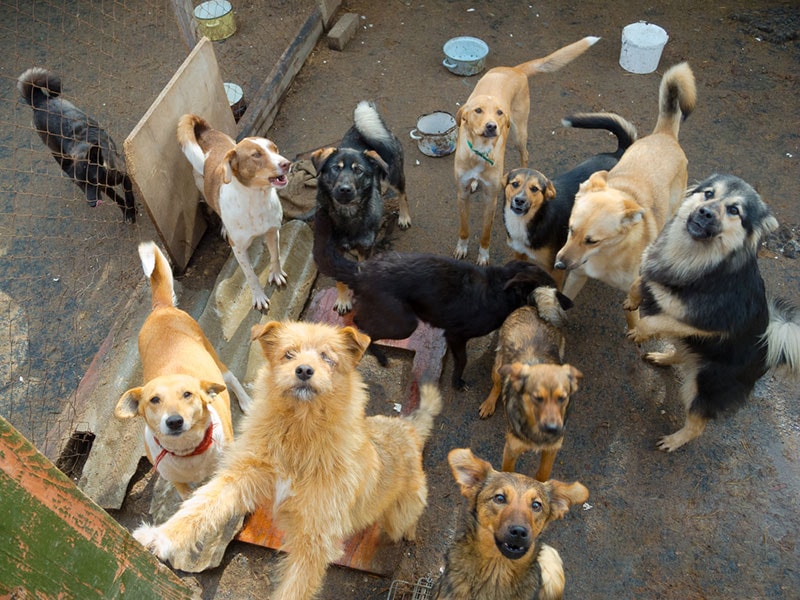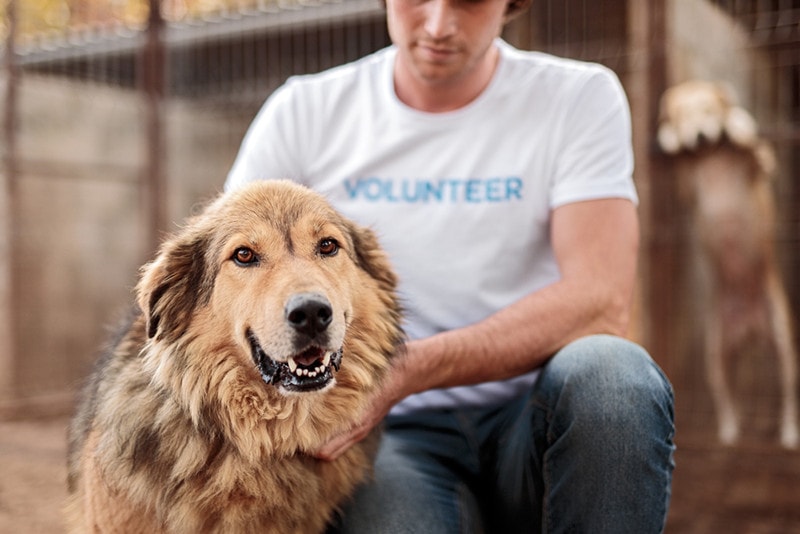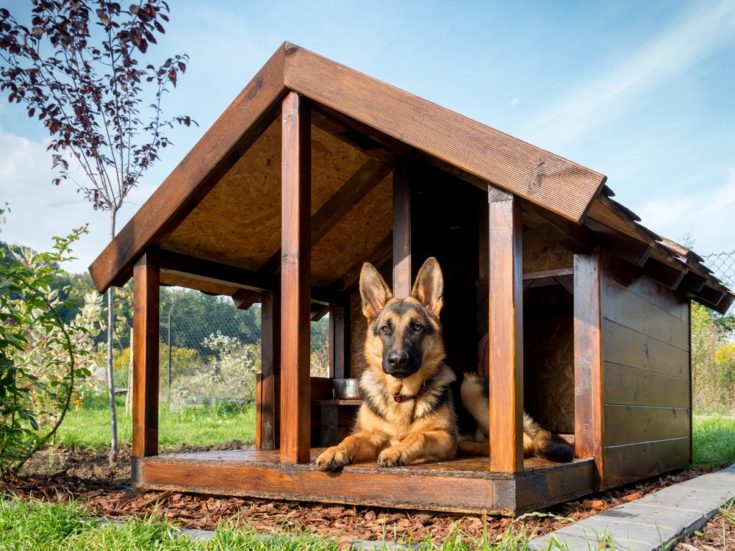National Animal Shelter Appreciation Week 2024: When It Is & What to Do

Updated on

Mark your calendars, pet lovers! National Animal Shelter Appreciation Week is just around the corner. This annual event is a heartfelt tribute to all those who work tirelessly in animal shelters and rescues across the country. In 2023, National Animal Shelter Appreciation Week falls on November 5th to 11th, in other words, every first week in November. So, let’s take this opportunity to delve more into this special week and explore how we can contribute to the well-being of our furry friends.
What Is National Animal Shelter Appreciation Week?
National Animal Shelter Appreciation Week is a week-long celebration honoring animal shelters and the dedicated individuals who provide a safe haven for animals in need. Initiated by The Humane Society of the United States, National Animal Shelter Appreciation Week aims to raise awareness about the invaluable role shelters play in our communities.

The History Behind the Celebration
This observance was created to acknowledge the tireless efforts of shelter workers who rescue, rehabilitate, and rehome animals. It also serves as a reminder of the importance of supporting local shelters and contributes to their mission.
Why Celebrate National Animal Shelter Appreciation Week?
Celebrating National Animal Shelter Appreciation Week helps shine a spotlight on the noble work conducted by animal shelters and rescue groups. It provides an opportunity to express gratitude and offer support to these organizations that work round-the-clock for animal welfare.
During this week, individuals, communities, and businesses are encouraged to show their support for local shelters. This could be through volunteering, donations, or simply spreading the word about the critical work these shelters do.
The 7 Ways to Celebrate National Animal Shelter Appreciation Week
There are numerous ways to celebrate this special week and make a difference in the lives of shelter animals. Here are some suggestions.
1. Volunteering at Your Local Shelter
Volunteers are the backbone of any shelter. They help with various tasks, from cleaning and feeding to socializing the animals. Volunteering can be a rewarding experience, offering a chance to make a direct impact on animal lives. It’s also an excellent opportunity to learn more about animal care and behavior.

2. Donating to Your Local Shelter
Donations, whether monetary or in-kind, are always welcomed by shelters. Items such as food, toys, bedding, and cleaning supplies can go a long way in helping shelters provide for their residents. Monetary donations can help fund medical treatments, vaccinations, and other essential services.
3. Adopting or Fostering an Animal
If you’re considering adding a furry member to your family, consider adoption. Adopting from a shelter gives an animal a second chance at a loving home. If adoption isn’t an option, fostering is another great way to help. Fostering involves providing a temporary home for an animal until they find their forever family.

4. Organizing a Fundraiser
Organizing a fundraising event is another great way to support your local shelter. This could be a bake sale, a charity run, or even a virtual event. The funds raised can significantly help shelters in taking care of their animals and carrying out their operations.
5. Spreading Awareness
Use your social media platforms or local community gatherings to spread awareness about your local shelters and the work they do. Sharing success stories of adopted pets or the daily workings of a shelter can help garner support and inspire others to contribute.
6. Educating Others
Take this opportunity to educate yourself and others about responsible pet ownership. Understanding the commitment that comes with having a pet can help reduce the number of animals that end up in shelters.

7. Advocating for Animal Rights
Advocacy can play a significant role in improving the lives of shelter animals. You can participate in campaigns promoting animal rights or lobby for laws that protect animals and support shelters.
By celebrating National Animal Shelter Appreciation Week, not only do we show our gratitude to the shelters and their dedicated workers, but we also contribute to creating a better world for our furry friends.
Ideas for Celebrating Animal Shelter Week With Kids
Celebrating Animal Shelter Week with kids can be both fun and educational. Here are some ideas:
- Take the Pledge: Encourage your children to pledge to be kind to animals throughout the year. This can be done through an online platform or a simple handwritten note at home.
- Pet Care: Teach your kids how to take care of pets. This could include feeding them, grooming them, and understanding their needs.
- Fun Activities with Pets: Plan activities that involve your pets. Take your pet for a walk, have a bath with your pet or make keepsakes like clay paw prints or photo albums.
- Adopt a Pet: If you’re ready for the responsibility, consider adopting a pet from a local animal shelter. This could be a great opportunity to teach your kids about the importance of giving a home to an animal in need.
- Donate to a Local Animal Shelter: Encourage your kids to donate to a local animal shelter. This could be a monetary donation or supplies like food, toys, and blankets.
- Learn About Animals’ Needs: Use this week as an opportunity to teach your kids about the needs of different animals. You could read books about animals, watch documentaries, or even invite a local vet for a talk.
- School Projects: Encourage your kids to start a project at school that raises awareness about animal issues. This could be a presentation, a poster campaign, or a fundraiser.
- Homemade Treats for Pets: Bake homemade treats for your pets with your kids. This can be a fun activity that also teaches them about the dietary needs of different animals.
- Visit a Local Animal Shelter: Plan a visit to a local animal shelter. This could be a great opportunity for your kids to interact with animals and learn about the work shelters do.
- Fundraising Ideas: Start a fundraiser for your local animal shelter. This could be a bake sale, a sponsored walk, or an online crowdfunding campaign.
- Remember, the aim of these activities is not just to have fun, but also to instill a sense of responsibility and compassion towards animals in your kids.
The Role of Shelters in Promoting Pet Health
Shelters are the cornerstone of pet health, offering an array of services that ensure animals receive the care they deserve. They provide medical attention to injured or sick animals, administer routine vaccinations, and emphasize the importance of spaying and neutering to control overpopulation.
Offering Essential Medical Care
Shelters play a critical role in delivering primary medical care to animals, especially those who are injured or sick. They possess the resources and expertise to treat such animals, ensuring they receive immediate and appropriate care. Routine check-ups and vaccinations are also part of their provision, contributing significantly to the animals’ overall well-being.

Prioritizing Spaying and Neutering
Animal shelters place great importance on spaying and neutering as a method of controlling the pet population and preventing overpopulation. Offering low-cost or free spay/neuter programs to the public, they make these essential services accessible to all pet owners. This not only improves the health and longevity of individual animals but also aids in reducing the number of homeless pets.
Ensuring Nutritious Diets
Adequate nutrition is paramount to an animal’s health and happiness. Shelters take this responsibility seriously, ensuring all animals under their care receive a balanced diet tailored to their age, size, and health status. Collaborating with veterinarians and pet nutrition experts, they work out the best dietary plans for each animal. A nutritious diet is foundational to the overall health and vitality of animals.
Providing Enrichment Activities
Beyond physical health, mental stimulation plays a crucial role in an animal’s well-being. Shelters foster the mental health of animals by offering various enrichment activities. These might include interactive toys, puzzle feeders, and opportunities for socialization with other animals or humans. Such activities help alleviate stress and boredom among shelter animals, enhancing their quality of life and making them more appealing to potential adopters.
Maintaining Proper Housing and Environment
The housing and environment provided by shelters are vital elements in promoting animal health. Appropriate housing can alleviate stress, prevent disease transmission, and foster overall well-being among animals. Many shelters employ double-compartment housing, a practice recognized as crucial for maintaining the health and happiness of cats and dogs in shelter environments.

Conclusion
National Animal Shelter Appreciation Week is more than just a celebration. It’s a call to action for everyone to recognize the incredible work done by animal shelters and the people who dedicate their lives to helping animals in need. Let’s take this opportunity to show our appreciation and lend a helping hand. After all, every small act of kindness can make a world of difference in the lives of these animals.
See Also:
- When Is Mayday for Mutts? How to Celebrate It
- When Is Clear the Shelters? Full Guide & How to Participate
Featured Image Credit: Anton Gvozdikov, Shutterstock









